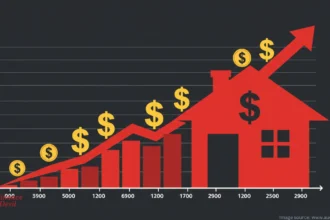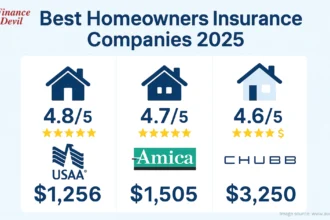Buying your first home is an exhilarating yet daunting experience. While the prospect of homeownership is thrilling, the financial hurdles can seem insurmountable, especially for those with limited resources. Fortunately, various programs and initiatives aim to make this dream a reality for first-time homebuyers. From low-down payment loans to grants and assistance, these offerings can provide the much-needed boost to help you embark on your homeownership journey.
Understanding First-Time Homebuyer Programs

First-time homebuyer programs are designed to make homeownership more accessible and affordable for individuals and families who have never owned a home before or haven’t owned one within the last three years. These programs come in various forms, including low-interest loans, down payment assistance, tax credits, and educational resources.
The primary goal of these initiatives is to remove some of the financial barriers that often prevent aspiring homeowners from entering the housing market. By providing support and resources, first-time homebuyer programs help bridge the gap between dreams and reality, paving the way for individuals to build equity, establish roots in their communities, and achieve financial stability.
Low-Down Payment Loan Programs
One of the most significant hurdles for first-time homebuyers is saving for a substantial down payment. Fortunately, several loan programs are designed specifically to address this challenge by offering low-down payment options.
FHA Loans
The Federal Housing Administration (FHA) loan program, insured by the U.S. Department of Housing and Urban Development (HUD), is a popular choice for first-time homebuyers. With an FHA loan, you can secure a mortgage with as little as 3.5% down payment, making homeownership more attainable.
To qualify for an FHA loan, you’ll need a minimum credit score of 580 (or 500 with a 10% down payment) and meet specific income and debt-to-income ratio requirements. Additionally, you’ll be required to pay mortgage insurance premiums, which can be rolled into your monthly mortgage payments.
Conventional Loans
Conventional loans, backed by government-sponsored enterprises like Fannie Mae and Freddie Mac, offer low-down payment options for first-time homebuyers. The Conventional 97 loan allows you to put down as little as 3% for a single-family home, while Fannie Mae’s HomeReady and Freddie Mac’s Home Possible programs also require a minimum down payment of 3%.
To qualify for these programs, you’ll typically need a credit score of at least 620 and meet specific income and debt-to-income ratio requirements. Additionally, you’ll be required to pay private mortgage insurance (PMI) until you’ve built up sufficient equity in your home.
VA Loans
If you’re an active-duty military member, veteran, or eligible surviving spouse, the Department of Veterans Affairs (VA) loan program offers a valuable opportunity to purchase a home with no down payment. VA loans are backed by the federal government and provide competitive interest rates and flexible credit requirements.
To qualify for a VA loan, you’ll need to meet specific service requirements and obtain a Certificate of Eligibility (COE) from the VA. While no down payment is required, you’ll be responsible for funding fees, which can be financed into your mortgage or paid upfront.
USDA Loans
The U.S. Department of Agriculture (USDA) offers a loan program designed to promote homeownership in rural areas. USDA loans require no down payment and offer competitive interest rates, making them an attractive option for first-time homebuyers in eligible rural areas.
To qualify for a USDA loan, you’ll need to meet specific income limits and purchase a home in an area designated as rural by the USDA. Additionally, the property must be your primary residence, and you’ll be required to pay an upfront guarantee fee and an annual fee, which can be financed into your mortgage.
Down Payment Assistance Programs
Even with low-down payment loan options, saving for the initial down payment can still be a significant obstacle for many first-time homebuyers. Fortunately, various down payment assistance programs are available to help bridge this gap.
State and Local Programs
Many states and municipalities offer down payment assistance programs designed to help first-time homebuyers overcome the financial hurdles of purchasing a home. These programs typically provide grants, forgivable loans, or second mortgages to cover a portion or all of the down payment and closing costs.
The specific requirements and eligibility criteria for these programs vary by location but often include income limits, homebuyer education requirements, and restrictions on the property’s value or location. To learn about available programs in your area, contact your state’s housing finance agency or local housing authority.
Employer-Sponsored Programs
Some employers recognize the importance of homeownership for their employees and offer employer-assisted housing programs. These initiatives can provide various forms of assistance, such as down payment grants, forgivable loans, or matched savings plans.
Employer-sponsored programs are typically limited to employees who meet specific eligibility criteria, such as tenure, income limits, or geographic restrictions. It’s essential to check with your employer’s human resources department to determine if such a program is available and understand the requirements.
Non-Profit Organizations
Several non-profit organizations are dedicated to promoting homeownership and providing assistance to first-time homebuyers. These organizations may offer down payment grants, matched savings programs, or other forms of financial support.
Some well-known non-profit organizations that offer down payment assistance programs include the Neighborhood Assistance Corporation of America (NACA), Habitat for Humanity, and various community-based organizations. Eligibility criteria and assistance levels can vary, so it’s crucial to research and apply for programs that align with your specific circumstances.
First-Time Homebuyer Grants
In addition to down payment assistance programs, several grant options are available specifically for first-time homebuyers. These grants provide funds that do not need to be repaid, making them an attractive option for those with limited resources.
Federal Programs
The federal government offers several grant programs to support first-time homebuyers:
- The HomePath Ready Buyer program by Fannie Mae provides up to 3% of the purchase price in closing cost assistance for those buying a Fannie Mae-owned property.
- The Good Neighbor Next Door program offers eligible law enforcement officers, firefighters, emergency medical technicians, and teachers the opportunity to purchase a home at a 50% discount in designated revitalization areas.
State and Local Programs
Many states and municipalities offer first-time homebuyer grant programs to encourage homeownership and promote community development. These grants can be used to cover a portion of the down payment, closing costs, or other expenses associated with purchasing a home.
For example, the city of Los Angeles offers the Low-Income Purchase Assistance Program, which provides up to $90,000 in assistance to eligible first-time homebuyers. Similarly, the state of Florida offers the Florida Homebuyer Loan Program with Florida Housing Finance Corporation (FL HFC) Plus, providing up to $10,000 in down payment and closing cost assistance.
Lender-Specific Programs
Many mortgage lenders and banks offer their own first-time homebuyer grant programs to attract new customers and promote homeownership. These programs can vary widely in terms of eligibility criteria, grant amounts, and specific conditions.
For example, Chase Bank’s Homebuyer Grant provides up to $7,500 in closing cost assistance for eligible borrowers in select markets. Similarly, Bank of America’s America’s Home Grant Program offers up to $7,500 in lender credits for closing costs.
It’s essential to research and compare different lender-specific programs to find the one that best suits your needs and circumstances.
READ ALSO: 2024’s Best Mortgage Rates for First Time Home Buyers
Homebuyer Education and Counseling
Many first-time homebuyer programs require participants to complete homebuyer education or counseling courses. These courses are designed to provide valuable information and guidance on the homebuying process, budgeting, credit management, and the responsibilities of homeownership.
Homebuyer education courses can be offered by various organizations, including housing counseling agencies, non-profit organizations, and government entities. Some lenders may also offer their own homebuyer education programs or partner with approved providers.
While these courses may seem like an additional requirement, they can be invaluable in preparing first-time homebuyers for the financial and practical aspects of homeownership. By acquiring knowledge and skills, you can make informed decisions and increase your chances of a successful homebuying experience.
To Recap
Embarking on the journey of homeownership as a first-time homebuyer can be both exciting and daunting. While the financial hurdles may seem overwhelming, numerous programs and initiatives are available to help make this dream a reality. From low-down payment loan options to down payment assistance, grants, and homebuyer education, these resources provide valuable support and guidance throughout the process.
By taking advantage of these programs, you can overcome the initial financial barriers and embark on a path towards financial stability, community roots, and long-term wealth-building. However, it’s crucial to thoroughly research and understand the eligibility criteria, requirements, and limitations of each program to ensure you make informed decisions that align with your specific circumstances.
Homeownership is a significant milestone, and with the help of first-time homebuyer programs, it can become an achievable goal for many. Embrace the journey, seek guidance from professionals, and explore the various options available to you. With determination and the right assistance, you can unlock the door to your dream home and embark on a new chapter of stability and prosperity.
Frequently Asked Questions (FAQs)
Who is considered a first-time homebuyer?
The definition of a first-time homebuyer can vary among programs, but generally, it refers to individuals or households who have never owned a home before or have not owned a home within the past three years. Some programs may also consider individuals who have previously owned a home but no longer do due to circumstances such as divorce or job relocation.
What are the income limits for first-time homebuyer programs?
Many first-time homebuyer programs have income limits to ensure that the assistance is targeted toward those who truly need it. Income limits can vary significantly depending on the program, location, and household size. It’s essential to check the specific income limits of the programs you’re interested in to determine your eligibility.
Can I combine multiple first-time homebuyer programs?
In some cases, it may be possible to combine multiple first-time homebuyer programs to maximize the assistance you receive. However, it’s crucial to carefully review the guidelines and restrictions of each program to ensure compatibility. Some programs may prohibit the use of other forms of assistance or have specific requirements regarding the order in which the assistance is applied.
Do I need to be a first-time homebuyer to qualify for these programs?
While many programs are explicitly designed for first-time homebuyers, some may also be available to individuals or households who have previously owned a home but no longer do. It’s important to review the eligibility criteria of each program to determine if you qualify, even if you’ve owned a home in the past.
Can I use first-time homebuyer assistance for a vacation home or investment property?
In most cases, first-time homebuyer programs require that the property be used as your primary residence. Assistance is typically not available for purchasing vacation homes, investment properties, or second homes.
In another related article, How to FSBO Your House: Tips for Selling Your Home By Owner





